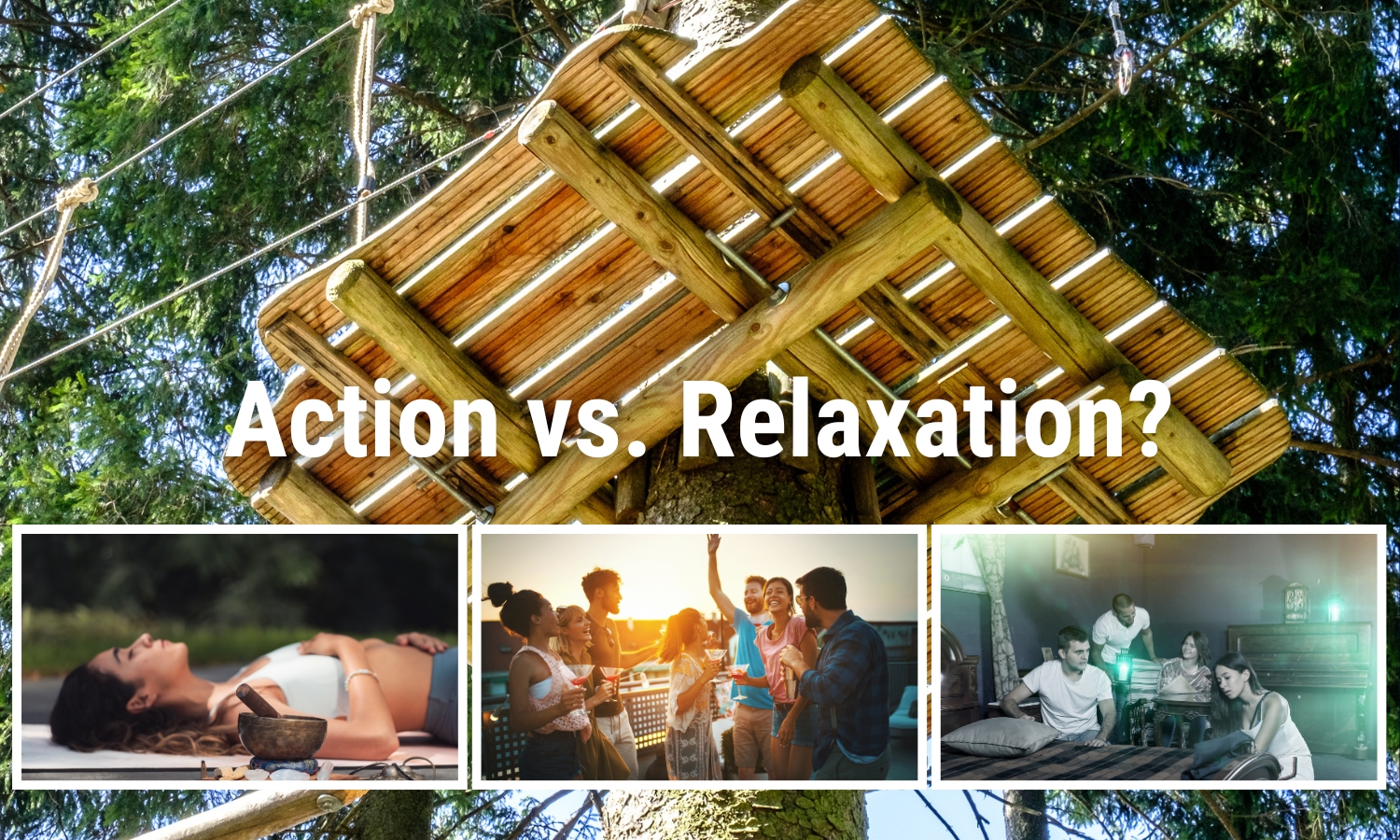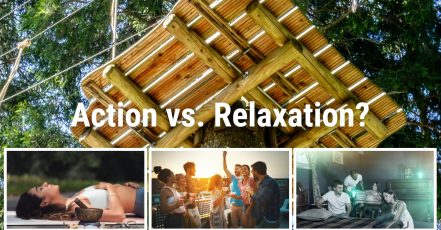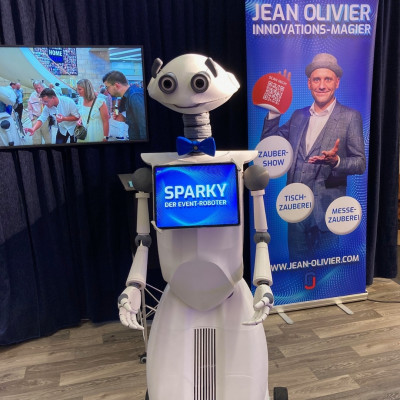From thrilling climbing courses to mystical sound bowl meditations – today’s business events are increasingly focused on "experiences" rather than pure information. It’s all about sparking emotions, strengthening relationships, and creating lasting positive feelings. But what does the perfect mix of experiences look like? Do participants crave their next adrenaline rush, or do they prefer revitalization, relaxation, and balance?
Currently, two major trends are emerging in the design of supporting programs for business events: on one side, a booming demand for more action, and on the other, a growing desire for deceleration and regeneration.
"Demand isn’t one-dimensional," explains Monika Monzel, Managing Director of AdCoach, responsible among other things for event seminars and experience design at the German Marketing Academy 'AdCoach Academy' (www.adcoach.de). "Many companies want to offer their business audiences added value at trade fairs and corporate events – something that goes beyond pure information and networking. Experiences that inspire in the long term are the focus. The trend is heading in two opposing directions: Excitement versus Relaxation. We always recommend combining both, ideally as selectable modules – customizable according to the visitor type."
One thing’s for sure: Not every guest enjoys adrenaline-packed activities like climbing courses, racing events, or VR challenges. Sometimes it’s a matter of personal energy levels, but more often it comes down to individual preferences. Likewise, meditation workshops or herbal foraging sessions aren’t for everyone. The best strategy is to tailor the supporting programs to different types of guests – at least to two types of guests: (1) the action/adrenaline seeking guest and (2) the wellness/relaxation oriented guest.
What Motivates the "Adrenaline Type"?
Exciting, challenging activity modules are real energy boosters – they strengthen self-confidence and promote fellowship. Those who take on a challenge together often go home with new friends and the positive experience of having achieved (almost) everything as a team.
Adrenaline activities are especially popular with young, dynamic companies or international teams that typically only meet online. They encourage connection and turn colleagues into allies.
Examples of such event modules include:
- Team challenges such as escape room games, or virtual alternatives such as a joint VR trip to Mount Everest.
- Stunt and parkour workshops for those eager to test their fitness limits — ideally paired with a video shoot and stunt show.
- Personal challenges such as indoor skydiving (free fall in a wind tunnel – who is the bravest?) or urban abseiling (e.g. abseiling from high-rise buildings – who will even dare?).
- Tech challenges, e.g. a drone racing competition testing reaction speed, precision, and tech skills.
What Motivates the "Relaxation Type"?
Modern business life grows ever more demanding. A certain level of calmness and composure is essential. Both experienced managers and younger employees appreciate the opportunity to relax in a business environment in order to master difficult situations with clarity and composure. Event modules that satisfy this need send out a clear message: "We see you and we value your well-being".
But you should be careful not to slip into esoteric clichés – the programs have to be business-oriented. Many people are interested in methods for stress reduction and revitalization, but not necessarily in aromatic incense sticks and mystical chants.
Here are some examples of wellness-promoting, business-appropriate formats:
- Rooftop stretching sessions overlooking an amazing city skyline, followed by a healthy smoothie tasting.
- Gentle business yoga with exercises that guests can use later at their own office desk. The same applies to short, inspiring breathing exercises (which are easy to do in business attire) that provide an immediate energy boost.
- Power-napping experiences with ergonomic loungers, noise-canceling headphones, and soothing soundscapes. Similar: massage chairs for quick deep relaxation between work sessions.
- Walk & Talk sessions in nature — small groups discussing relevant topics while strolling. Variations include guided forest bathing or vineyard hikes with expert-led insights.
- Health-food experiences, e.g. superfood workshops, vegan gala dinners, healthy mocktail creations, algae tastings. Importantly, traditional catering should still be available for those less interested in experimental healthy options.
- Impulse sessions on lifestyle topics like mental health, resilience, self-motivation, personal fitness, and mental relaxation led by professional coaches who would typically charge high fees for private consultations.
These formats are particularly effective at longer events, with mixed-age groups, or wherever regeneration is a priority — for example after intense strategy meetings or to round off a multi-day conference.
Editorial Conclusion: The most successful supporting programs at business events offer choice — between action & adrenaline on the one hand, and revitalization, relaxation & indulgence on the other. Depending on mood, personality, and workload, participants have different needs and preferences. These should be addressed in event planning by offering a modular program.
Please note: A supporting program should never feel overcrowded. Less is often more. Quality beats quantity — better two standout highlights than five mediocre activities.
If there is not enough room or budget for several program modules, remember: thrilling action should never be a must! If you offer adrenaline kicks, you also need to create comfortable alternatives for less adventurous guests – e.g. a VIP lounge with cocktails or mocktails, snacks and the opportunity to watch your colleagues' activities and capture the action in great photos.
A good event experience also means allowing time for individual activities and scheduling "free slots" into the agenda. People need personal downtime — even (or especially) during packed business events.
Cover image (collage): Action versus Relaxation – Supporting Programs for Business Events (Copyright: EventMasterBook.de Editorial team / Photos: Canva stock)

Related topics: event design, business events, experience design, supporting program, action, wellness, relaxation, revitalization, balance, wellbeing, feel-good management, event management, event planning, program planning, event program, event customization
Summary: How to create supporting programs for business events. The ideal mix of experiences is "Action" plus "Relaxation", ideally as individual selection modules. Event planning tips from the EventMasterBook.com editorial team.
Please note: This text was translated from the German EventMasterBook.de Event Magazine (see article: Action vs. Entspannung – Das perfekte Rahmenprogramm). Please excuse any translation errors.
Categories:








